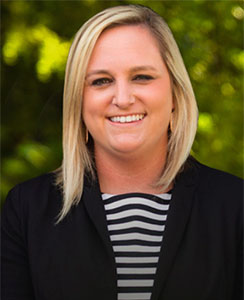When applying for Social Security Disability (SSD) benefits, the strength and quality of medical evidence can significantly influence the outcome of your claim. Medical evidence serves as the cornerstone of your application, providing the Social Security Administration (SSA) with essential information about your medical condition, its severity, and how it impacts your ability to work.
Why Medical Evidence Is Crucial
Medical evidence is fundamental in establishing the legitimacy of your disability claim. The SSA requires comprehensive documentation to determine whether your condition meets their strict definition of disability. Specifically, to qualify for SSD benefits, you must demonstrate that:
- Your condition prevents you from engaging in substantial gainful activity (SGA) for at least 12 months or is expected to result in death.
- Your claim is supported by objective medical evidence, including test results, doctor’s reports, and treatment notes.
Without robust medical evidence, even valid claims may be denied. This underscores the importance of gathering thorough documentation throughout your treatment process.
Key Types of Medical Evidence Needed for SSD Claims
To build a strong SSD claim, you should include a variety of medical documents that provide a complete picture of your health status. Here are the essential types of medical evidence you should gather:
Comprehensive Medical Records:
Include records from all healthcare providers involved in your treatment. This encompasses notes from primary care physicians, specialists, hospital records, and any imaging or lab test results.
These records should detail your diagnosis, treatment history, and the progression of your condition over time159.
Detailed Physician Statements:
Obtain statements from your treating physicians that explain how your condition affects your daily life and ability to work. These statements should articulate specific functional limitations caused by your disability24.
Objective Medical Tests:
Incorporate results from diagnostic tests such as MRIs, X-rays, blood tests, and pulmonary function tests. These objective findings provide concrete proof of your medical condition and its severity38.
Residual Functional Capacity (RFC) Assessments:
RFC assessments evaluate what activities you can still perform despite your disability. This assessment should be conducted by a qualified healthcare professional who understands your situation and can accurately describe your limitations16.
Treatment Notes:
Regular treatment notes from healthcare providers are vital as they document ongoing care and adjustments to treatment plans. Consistent medical attention demonstrates the seriousness and persistent nature of your condition27.
Strategies for Gathering Medical Evidence
To ensure that you have a strong case when applying for SSD benefits, consider the following strategies for gathering medical evidence:
Maintain Regular Appointments: Keep up with regular medical visits to ensure that your health records are current and comprehensive. This ongoing relationship with healthcare providers is crucial for documenting the progression of your condition57.
Request Complete Records: When obtaining medical records, ensure they are as complete as possible. Missing information can weaken your claim; therefore, verify that all relevant details are included before submission69.
Consult Specialists When Necessary: If applicable, seek evaluations from specialists who can provide detailed insights into how specific conditions affect your functioning. For instance, a report from a cardiologist may carry more weight than one from a general practitioner if you have heart-related issues59.
Prepare for Consultative Examinations: In some cases, the SSA may require you to undergo a consultative examination by an independent physician. Be prepared for this process by ensuring that all previous medical documentation is readily available
If you are navigating the complexities of an SSD claim or have been denied benefits previously, consider consulting with legal professionals who specialize in this area to help guide you through the process effectively.
We are here to help. Talk to our experts.

Social Security Disability Representative
Annie began working at the firm in 2011 and received her Juris Doctor Degree from Southern University Law Center in 2016. She has been a member of the National Association of Disability Representatives (NADR), and the National Organization of Social Security Claimants’ Representatives (NOSCR) since 2016; and in 2018 she became an Eligible for Direct Payment Non-Attorney (EDPNA) Representative.
